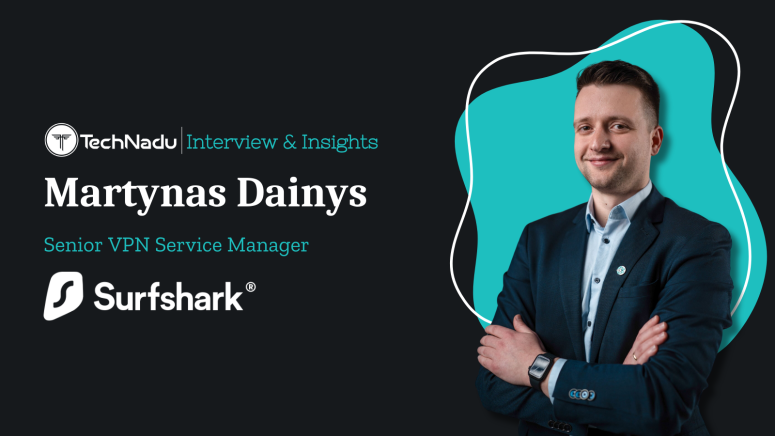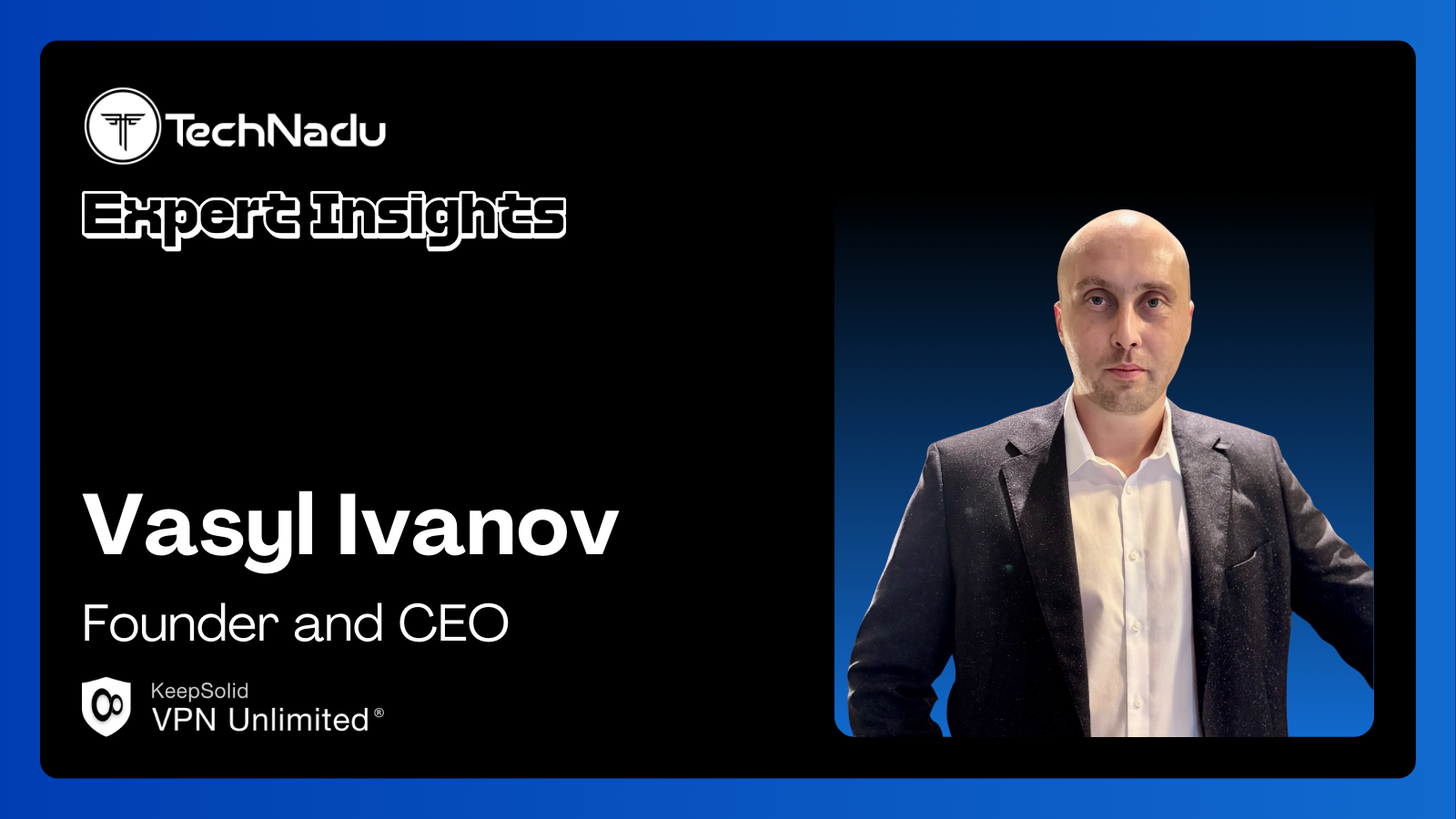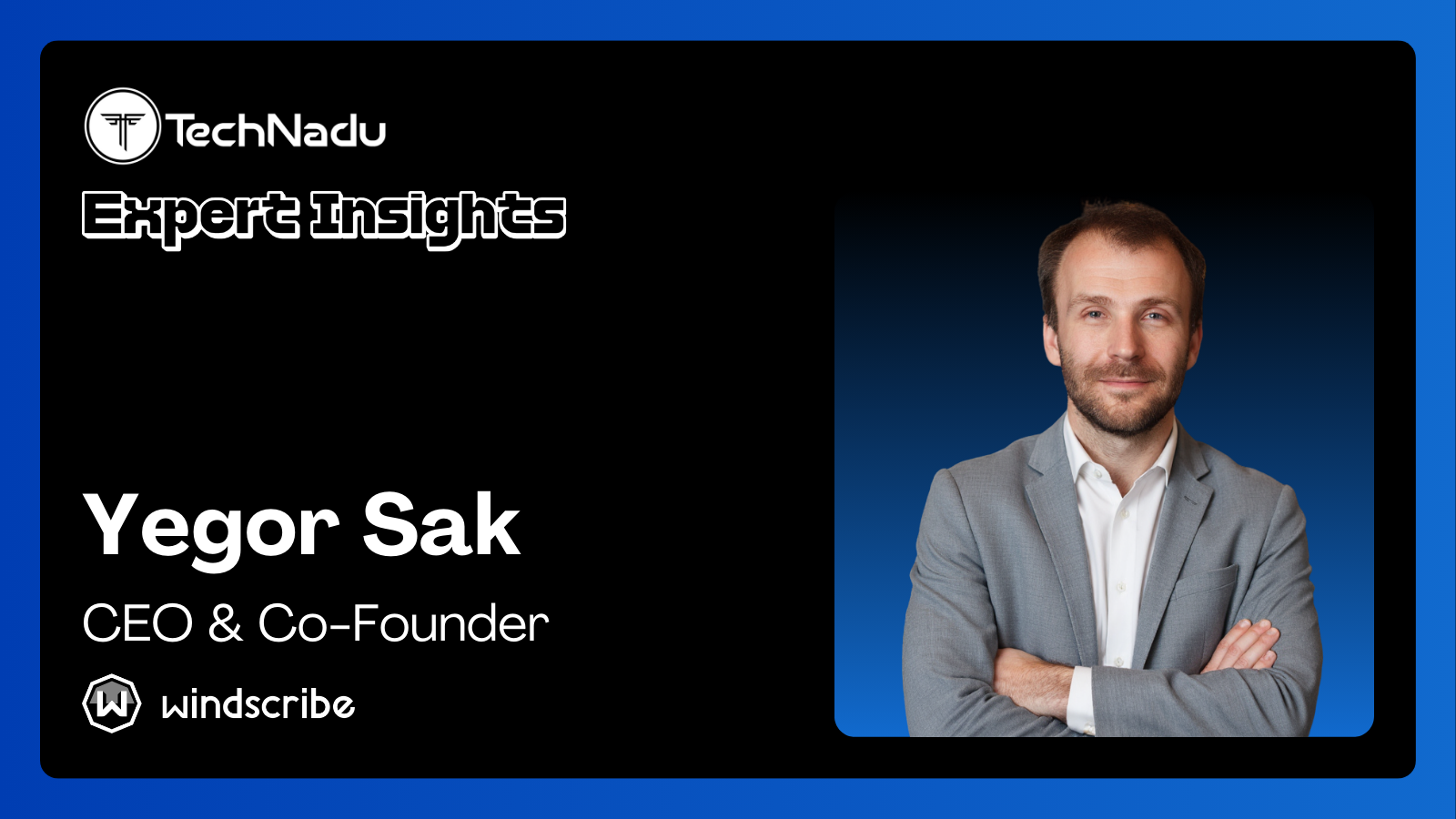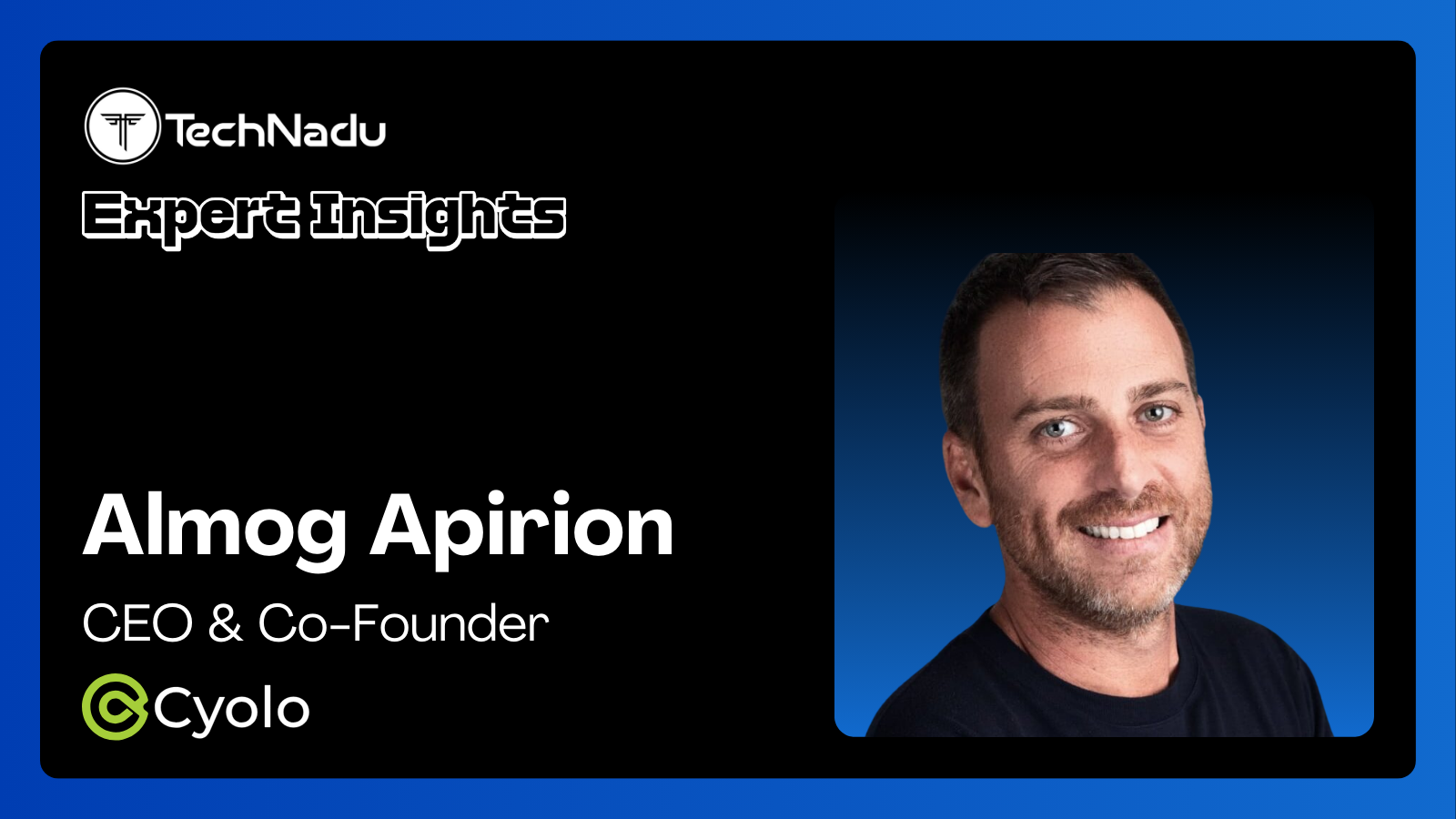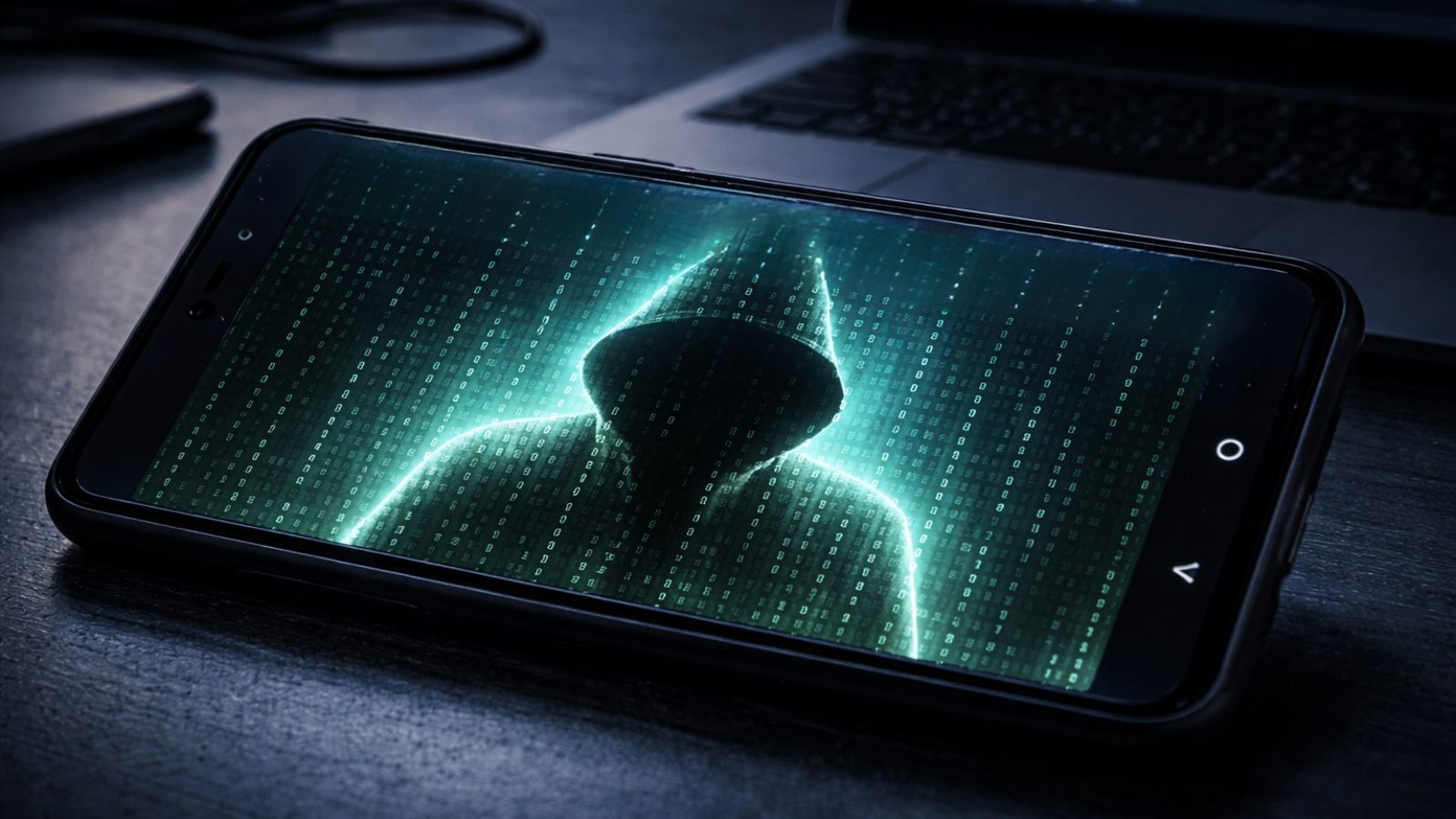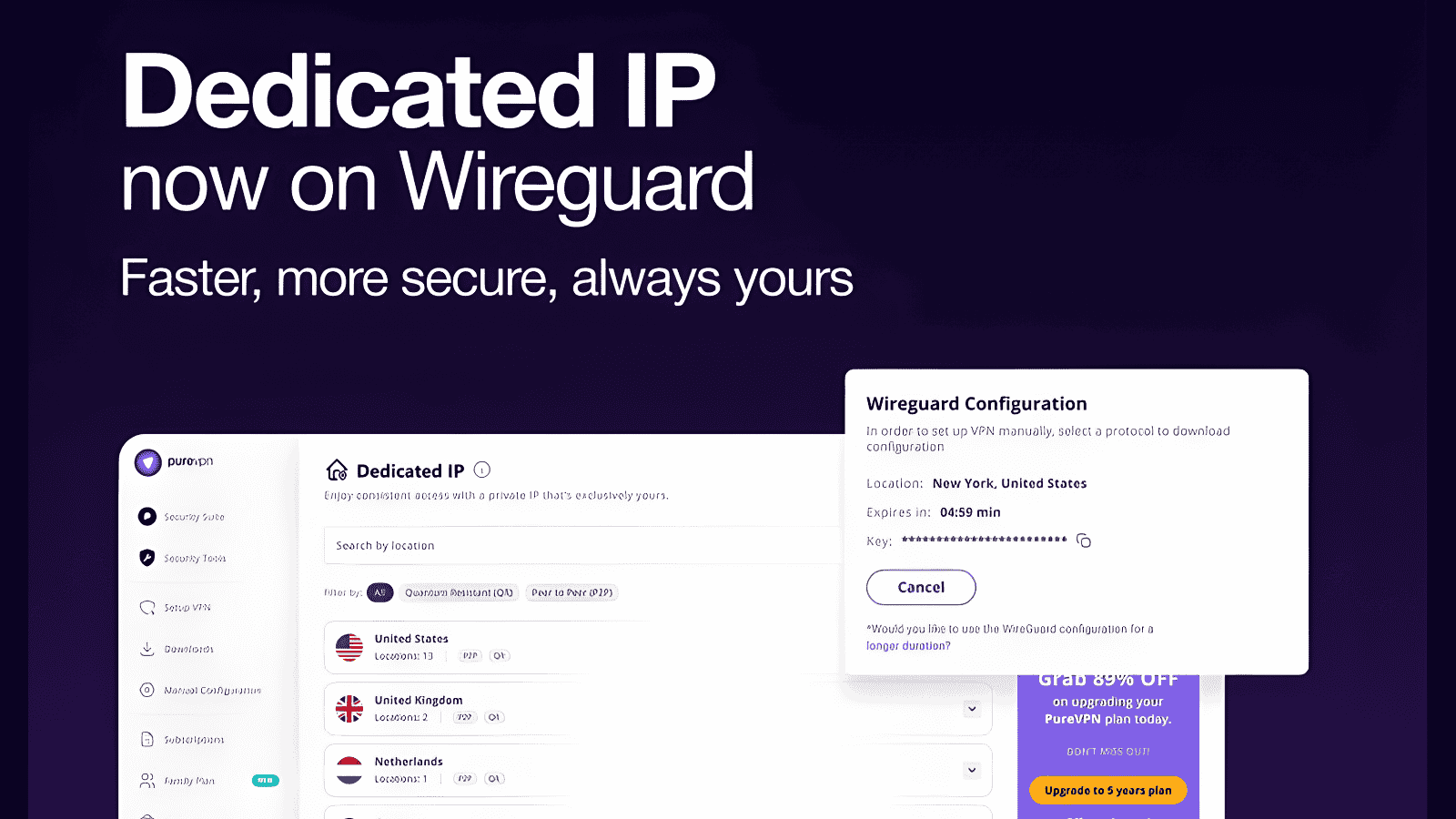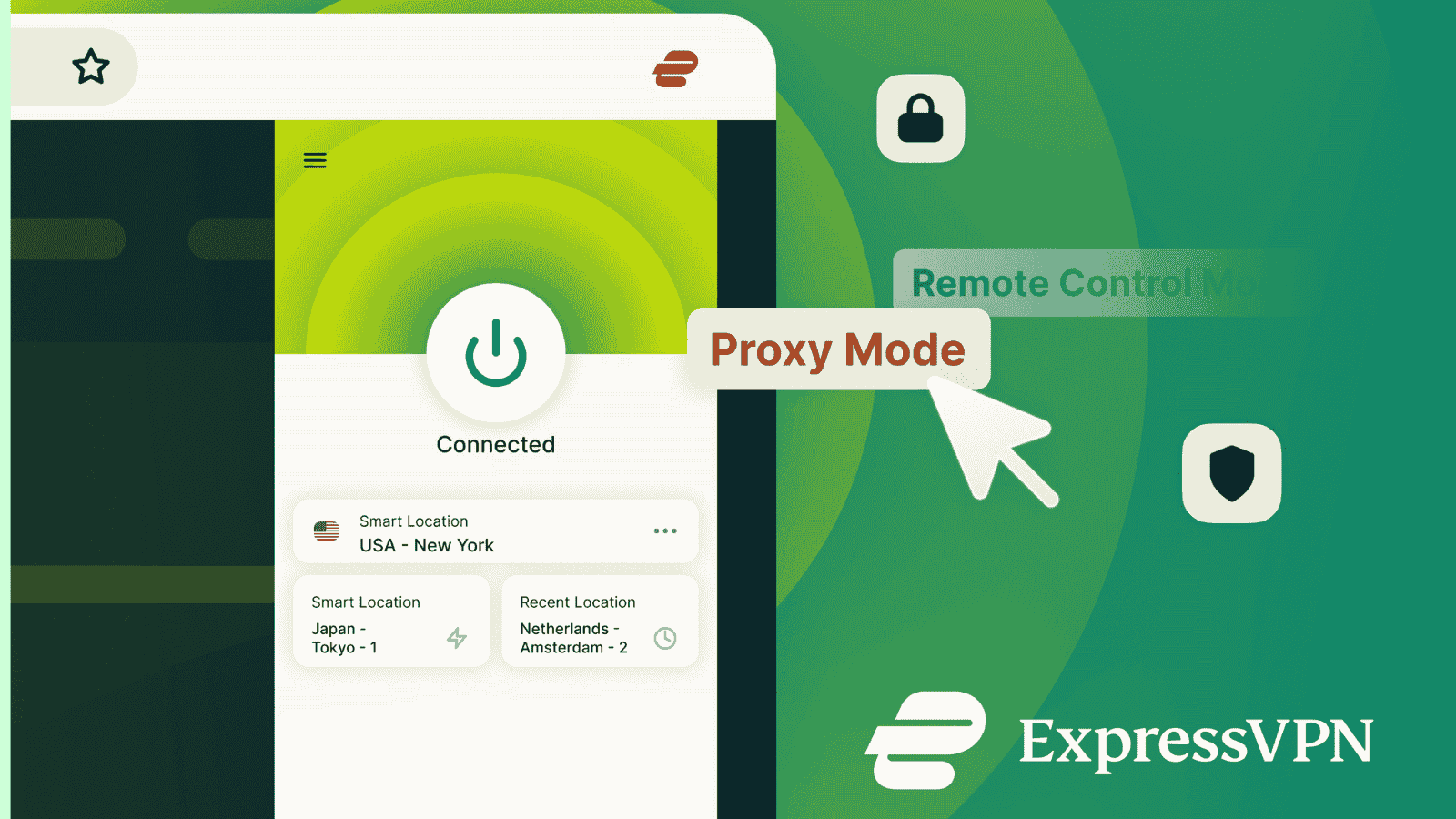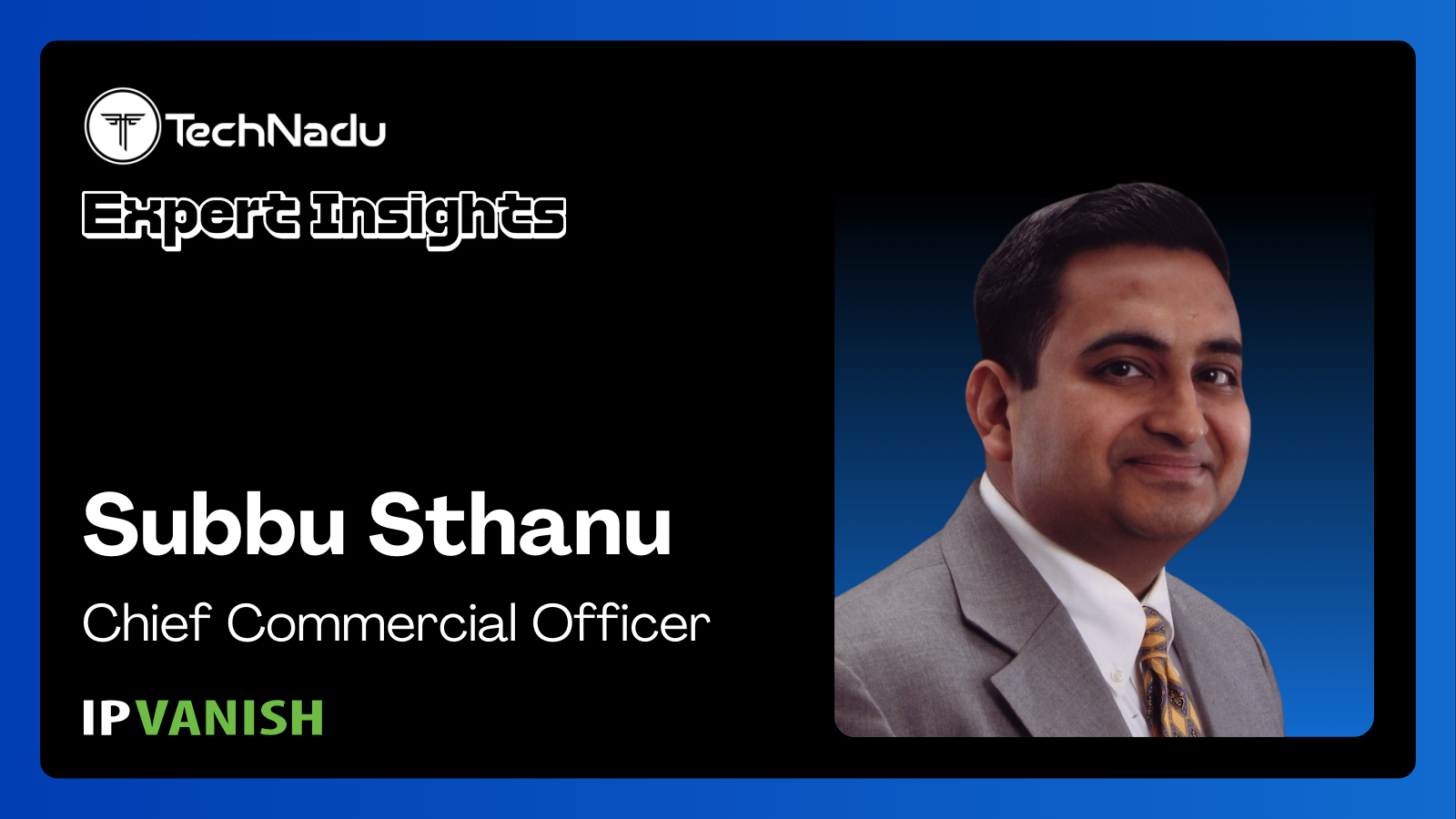
Surfshark on Shaping a Safer Internet: Post-Quantum Security, Internet Freedom, and the Human Side of VPNs
In this exclusive conversation with TechNadu, Martynas Dainys, Senior VPN Service Manager at Surfshark, shares how his early work in UK data centers shaped his approach to VPN infrastructure, the company’s upcoming leap into post-quantum cryptography, and the quiet but critical ways VPNs protect users without them realizing it.
Martynas dives deep into the complexities of modern VPN challenges, explains why user education is just as important as speed or encryption, and reflects on Surfshark’s no-logs philosophy in an era of increasing surveillance and legal scrutiny.
With a growing suite of privacy tools, including a powerful VPN, data leak alerts, and digital identity masking, Surfshark has positioned itself as more than just a VPN provider. It’s building a privacy-first ecosystem designed to empower users across every corner of the digital world.
Read on to discover Surfshark’s vision for a safer, more resilient Internet—and why the best VPN is one you never notice working.
1. Please share your professional journey, experience with VPNs, and role at Surfshark.
My professional journey began at a company in the United Kingdom, where I worked with data centers. These data centers hosted large-scale systems, and my role was to balance cost, performance, and limited capacity constraints. This required meeting the business's performance requirements while maintaining the desired service levels.
Subsequently, I was invited to join Surfshark, where I was tasked with addressing challenges related to VPN service quality. This opportunity significantly broadened my understanding of the cybersecurity landscape.
In my current role, my primary responsibility is to ensure that our systems provide the best possible user experience. This involves not only optimizing connection times and speeds but also enabling practical use cases and maximizing the benefits of a VPN for our users.
2. Could you introduce Surfshark products? What is Surfshark's highest priority for maintaining customer satisfaction?
Surfshark products include a VPN, Antivirus, Alternative ID & Number, Alert, and Search. The VPN service provides a secure, encrypted connection to a chosen location, safeguarding your privacy. It supports unlimited devices, offers reliable speeds, and ensures a stable connection, which is particularly useful when using public Wi-Fi.
Our Antivirus software detects, prevents, and removes malicious software, ensuring your device's security without unnecessary features that could slow it down. It is both user-friendly and customizable.
Alternative ID and Number are tools designed to protect your personal information. Alternative ID generates a complete set of personal details, including email, name, address, gender, and date of birth, while Alternative Number offers an additional layer of protection by masking your real phone number.
Alert is a data leak detection tool that promptly notifies you of leaks involving your personal information, such as accounts, emails, credit cards, and IDs. And the Search tool provides ad-free search results that are not influenced by digital footprint, location, or previous searches.
Surfshark's highest priority for maintaining customer satisfaction is to cater to the diverse needs of its users. The company is committed to enabling secure and private internet use for all its customers, regardless of their background or specific requirements.
3. What are the common VPN problems that you address at Surfshark? What would you say to people having difficulty troubleshooting VPN problems?
We support various platforms (applications), a diverse range of user hardware and software, as well as thousands of servers worldwide for users to connect to. Given this complexity, not every combination of these elements functions perfectly all the time.
This presents the greatest challenge and significant opportunity for the Surfshark VPN service.
For users who encounter difficulties troubleshooting VPN issues on their own, it's important to recognize the inherent complexity of internet technology. Numerous factors are at play in this intricate chain, and for everything to function smoothly, many components must align perfectly.
It only takes one element to falter for you to experience a loss of internet connectivity. Understanding this complexity can help you appreciate the challenges of maintaining a seamless VPN service.
4. Is Surfshark launching any new features or planning any infrastructure improvements? If yes, what are they? What is in store for Surfshark VPN users?
We're working on launching cutting-edge post-quantum protection for our VPN. As quantum computing raises major concerns and only a minority of the most popular apps are resilient, this development is crucial for protecting individuals, businesses, and governments against future technology that could compromise digital security.
5. Are there aspects of VPNs that most users find difficult to understand? If so, what challenges do you face when demonstrating the value of a VPN?
VPN technology can sometimes be challenging to understand fully, especially for those who may not be as familiar with digital tools. The benefits of a VPN are not always immediately visible or tangible, making it difficult to appreciate its value.
It's similar to purchasing insurance. You might not see its worth daily, but it becomes invaluable in the event of an incident.
One of the challenges in demonstrating the value of a VPN is that its effectiveness is often invisible. When a hacking attempt occurs or network restrictions are imposed while you're connected to a VPN, you might not even be aware of it.
The VPN works quietly in the background, ensuring your online activities remain secure and private. This seamless protection is a key aspect of what makes a VPN valuable, even if it's not always apparent.
6. Could you share your perspective on safe internet access through VPNs?
In my opinion, having safe and open access to the internet has never been more important. Today, there are many risks in the online world. For example, we are almost always connected to the internet, sometimes to public Wi-Fi networks, which can be easy targets for cybercriminals.
Additionally, with the rise of Artificial Intelligence and more people becoming tech-savvy, there are new opportunities for creating hacking methods.
Encrypting as much of your online activity as possible can help protect you from these risks. Another way to stay safe is reducing your digital footprint, which means sharing less personal information online.
7. What is your take on situations where a VPN company is asked to address piracy or even block sites? How does Surfshark address requests from law enforcement that ask for user data for legal proceedings? Where does Surfshark draw the line between continuing its services and fulfilling legal obligations? How does the company perceive such requests?
Our no-logs policy is a significant feature of our services, meaning that we do not collect any information about what you do online.
Additionally, all servers run on volatile (RAM) memory, which means that any information that would usually be on the hard drive is wiped off automatically whenever a server is turned off.
So far, as of May 2025, Surfshark has not received any National Security letters, gag orders, or warrants from any government organization.
8. What do people use VPNs more often for — to hide their location or to access sites that are restricted in their country?
Generally speaking, in many Western countries, people often use VPNs to enhance their security and privacy online. On the other hand, in countries with more restrictive internet networks and authoritarian governments, VPNs are commonly used to bypass these restrictions.
9. What would you advise VPN users to be cautious of?
Relying solely on a VPN for complete security is a misconception. While a VPN is a valuable tool for protecting your privacy, knowing about the various potential online threats and understanding how your online behavior can increase or decrease them is crucial.
To enhance your security, it's advisable to use a combination of different tools and practices, such as strong passwords, two-factor authentication, and regular software updates. However, even with these precautions, it's important to recognize that no solution can offer absolute protection against targeted attacks.


